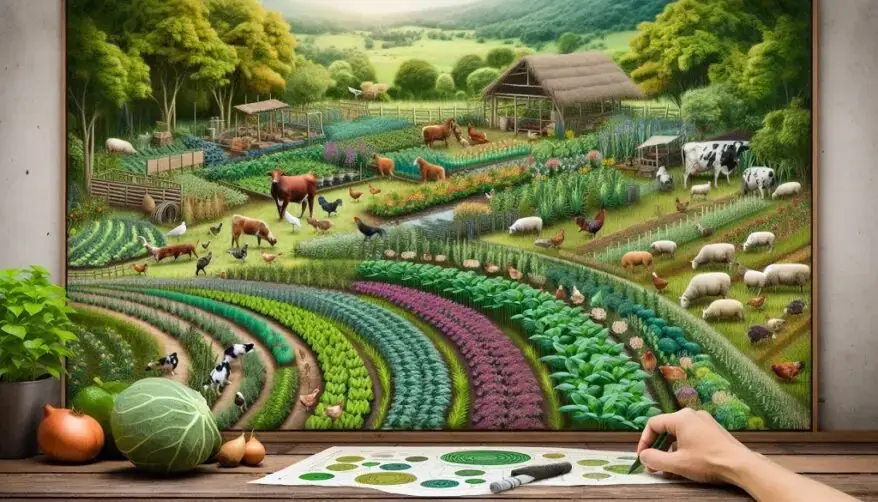Permaculture: A Sustainable Alternative to Conventional Agriculture
Estimated reading time: 2 minutes
Permaculture is a way of farming and gardening that works with nature and not against it. Conventional agriculture often uses methods like chemical fertilizers and pesticides. Researchers from the Rheinland-Pfälzische Technische Universität Kaiserslautern-Landau (RPTU) and the Universität für Bodenkultur Wien (BOKU) have comprehensively investigated the environmental benefits of permaculture for the first time in a joint study.
The journal Communications Earth & Environment published the study, which examined nine permaculture-practicing farms in Germany and Luxembourg. The scientists looked at different signs of biodiversity and soil quality in permaculture areas. Then, they compared these signs to the nearby conventional farmland. Biodiversity refers to the variety of plant and animal life in an area. Soil quality means how healthy and fertile the soil is for growing plants.
Although permaculture projects have been established all over the world since the 1970s, there has been surprisingly little accompanying scientific research, explains environmental scientist Julius Reiff from RPTU.
The Soil Quality and Biodiversity
The results of the study are promising. The soil quality and biodiversity on the permaculture plots were distinctly higher compared to conventional agricultural land. The permaculture soils had similar amounts of carbon and humus as grassland soils. Grassland soils are known for having a lot of humus serve as a good reference point. Humus is the part of soil made up of decayed plant and animal material. It helps soil hold onto water and nutrients.
Having a lot of humus in the soil is very important. Humus helps store nutrients and water. This is especially important now because of climate change. Humus helps the soil stay healthy during droughts. Interestingly, despite not using any mineral fertilizers, the permaculture soils exhibited a higher nutrient content.
Closing Remarks
Permaculture copies how nature works. It combines raising animals and growing plants. It encourages having many helpful organisms, so there’s no need for chemical fertilizers or pesticides. This all-around method is a good alternative to traditional farming. It protects the environment while still producing a lot of food.
The study shows that permaculture has many benefits. Permaculture is a way to grow food that works with nature. It can help solve problems like climate change and the loss of plants and animals. The research team says these findings are important. More and more people are interested in farming that is good for the environment.
If you’re interested in exploring the world of agriculture, be sure to visit ENTECH, our digital magazine dedicated to STEM education. There you can find articles and resources to help you discover your passions and pursue a career in environment and sustainability or other STEM-related fields.






